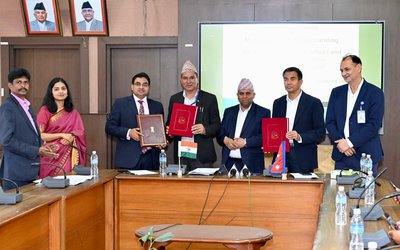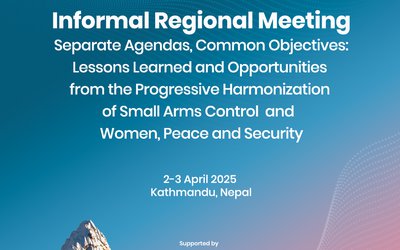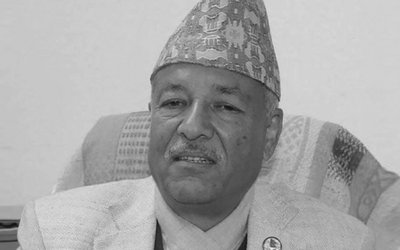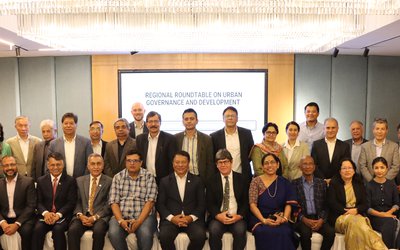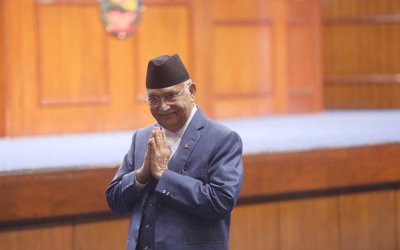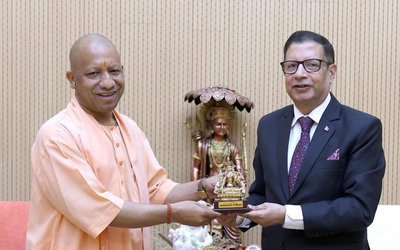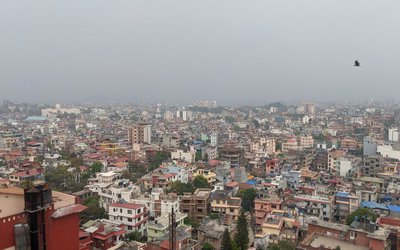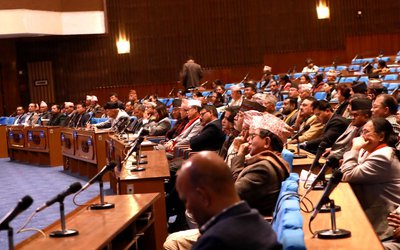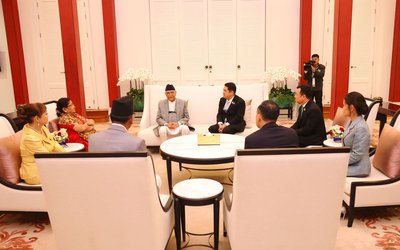
Almost every day, dozens of mothers die in South Asia due to complication in child delivery. Similarly, large numbers of children still die before completing the age of five. There are issues related to stunting, diarrhea and child health in South Asia. Of course, some countries in the region made certain progress in meeting some International Conference on Population & Development (ICPD) targets. However, they still need to go a long way to sustain the achievements made and progress further.
”Why do we still have so many women die while giving birth? Why do infants and children in large numbers still die despite advances in health systems? Why are women discriminated and bear the indignities of violence and abuse? Why a girl child, in some cases, is simply denied birth? Why are most young people denied access to basic information & services?” questioned Dr. Wasim Zaman to the political and civil society leaders at the outset of the two-day SAARC level regional meeting.
The questions raised by Dr. Wasim struck the mind of political leaders from the SAARC member countries, represented by senior ministers, MPs and Members of Legislative Assemblies, together with key civil society bodies who had gathered in Kathmandu for the two days regional consultation in reflecting on and taking stock of reproductive health and family planning issues in the region, especially as these issues evolved in the last twenty years after the Program of Action of ICPD was adopted in 1994 in Cairo.
After two days of intense discussions and debates, the regional consultation meeting unanimously endorsed taking forward the ICPD agenda beyond 2014 and called to action. It raises policy issues, resources, services, human resources, young people's sex and reproductive health rights, safe abortion, gender based violence, gender equality, male involvement, emerging challenges, partnership with civil society, governance and SAARC.
Political and civil society leaders and academia from the region give high importance to the ICPD's agenda. This is the region where the regional consultative meeting saw high level participation. During the inaugural session, ministers from Afghanistan, Bangladesh and Nepal were present. The concluding program was chaired by the Minister of Population, Government of Punjab, Pakistan Ms. Zakia Shahnawaz.
Two key papers: Overview of the Status of Reproductive Health and Family Planning in South Asia was presented by Ananda Tamang, Executive Director of CREHPA, Nepal and Key issues in Reproductive Health and Family Planning in South Asia was presented by by Dr. Saramma Mathai, senior expert in reproductive health. Representatives from the eight SAARC member countries also made their presentations.
After presentation of the country paper, discussions were held in building consensus for collective action. The program was extensive, covering the entire spectrum of population and reproductive issues of the region.
"Nepal’s maternal mortality has steeply declined; improvements have been made in maternal care services; there has been an increase in the number of women seeking assistance of skilled birth attendants, and expanded safe abortion services are some of the key reasons for considerable decline in maternal mortality "said Vidyadhar Mallik, Minister for Health & Population of Nepal. "Family planning situation has stagnated in Nepal in the past decade. Half of the Nepali women do not use a contraceptive method; whereas unmet need for family planning has increased and is quite high when compared to other South Asian countries. There is a need to respond to the unique needs of young people."
Home to one fifth of the world population, South Asian countries have been facing several problems in these issues. Leaders of all the countries of the region have shown their solidarity and common stand by attending the meeting. They want to carry the voices of the civil society to the UNGAS special session planned for September 2014.
"South Asian countries have a common voice on population issues. We want continued support from development partners to sustain the achievements made in infant and maternal mortality and to fulfill the unique needs of youth and adolescent," said Viplove Thakur, MP and Vice Chair of IAPPD and former Chair of Women’s Commission India. "All South Asian countries need to have a common stand for ICDP+2014 and beyond."
The UN’s International Conference on Population and Development (ICPD) was a strategic turning point in the way we approach population issues. It firmly placed the needs and rights of the individual at the heart of development policies and programs and envisioned a world where all people – women and men, young and old – enjoy equal opportunities and freedom to make choices and pursue their own life and aspirations. It particularly created space for rights-based framework in reproductive health and family planning information and services, including gender equity and equality, for all people, especially hard-to-reach, socially excluded and vulnerable groups.
"Afghanistan has to go a long way in areas of maternal and infant mortality and family needs. Our maternal mortality is still highest. The consultative meeting helped us to share the success stories of other parts of the region," said Dr. Najia Tareq, Deputy Minister of Health of Afghanistan.
Supported by David & Lucile Packard Foundation and in close collaboration with the CDPS/Nepal (Central Department of Population Studies), the two-day regional consultation was organized by the ICOMP (International Council on Management of Population Programs). This consultative process was aimed at providing a forum for dialogue amongst parliamentarians and civil society leaders as well as other development partners from the sub-region on new or emerging challenges and opportunities in implementation of the ICPD POA, the outcome of which will feed towards the ICPD Beyond 2014 review process.
Gowher Rizvi, Minister and Adviser to the Prime Minister of Bangladesh on Foreign Affairs, said “South Asia as a region will indeed define this century’s agenda. Our region cannot be ignored, it looms large". While recalling the Cairo Conference, Rizvi said “Much has happened since 1994; it is a story of successes and also frustrations. Civil Society has a pivotal role to play and act as a catalytic change agent. But unfortunately, full potential of civil society has not been tapped in our region.”
"South Asia needs special attention as the region has been facing several problems related to maternal mortality, unmet family planning needs, early girl child marriage and infant mortality rate," said Dr. Yasmeen Sabeeh Quazi, Senior Country Adviser of the population program of The David & Pakard Foundation.
"Bhutan is working to expand the family planning clinics and health clinics to address the issue of maternal and infant mortality," said Mina, MP of National Council of Bhutan.
Despite long years of engagement in family planning, in most countries of South Asia, family planning and overall issues of reproductive health are still major concerns that policy makers and program implementers have to address urgently.
"Nepal has made a lot of progress in infant and maternal mortality and controlling crude fertility rate. But, they are still insufficient and vulnerable. Like all other countries of the region, Nepal needs sustained support for some time to come," said Professor Dr. Ram Sharan Pathak, Head of the Central Department of Population Studies of Tribhuwan University.
"There is a need for a renewed political commitment by the SAARC member nations as South Asia lagged behind in achieving the ICPD goals in Asia and the Pacific region. Progress has been slow compounded by challenges and gaps. Therefore, it is essential that the voices of South Asian NGOs and civil society leaders be heard in all the important meetings for action,” emphasized Dr. Wasim Zaman, ICOMP Executive Director.
As the 20-year deadline for achieving the ICPD goals approaches, a global review of the state of population and development is underway. The review will assess achievements made since Cairo and identify outstanding issues and new challenges. It will serve to renew political support for the Program of Action, which has been extended beyond 2014 by the UN General Assembly, and will inform the post-2015 development agenda.

Keshab Poudel
Poudel is the editor of New Spotlight Magazine.
- FM Dr. Deuba’s India Visit: Mission Aborted
- Mar 26, 2025
- AMBASSADOR MAEDA TORU: Warm Regards
- Mar 24, 2025
- PRO-MONARCHY MOVEMENT: Rising Dissatisfaction
- Mar 23, 2025
- Dr. PRABIN MANANDHAR: Person With Humility
- Mar 16, 2025
- US SUSPESION OF GRANT: Impact On Nepal
- Mar 10, 2025
